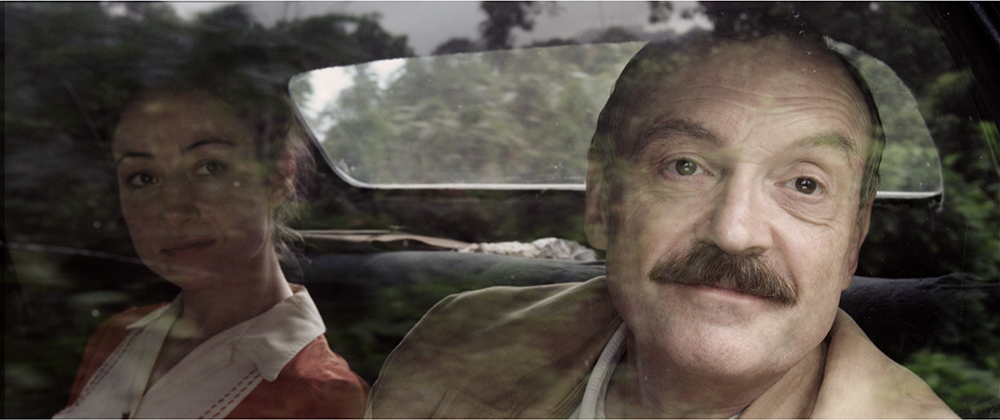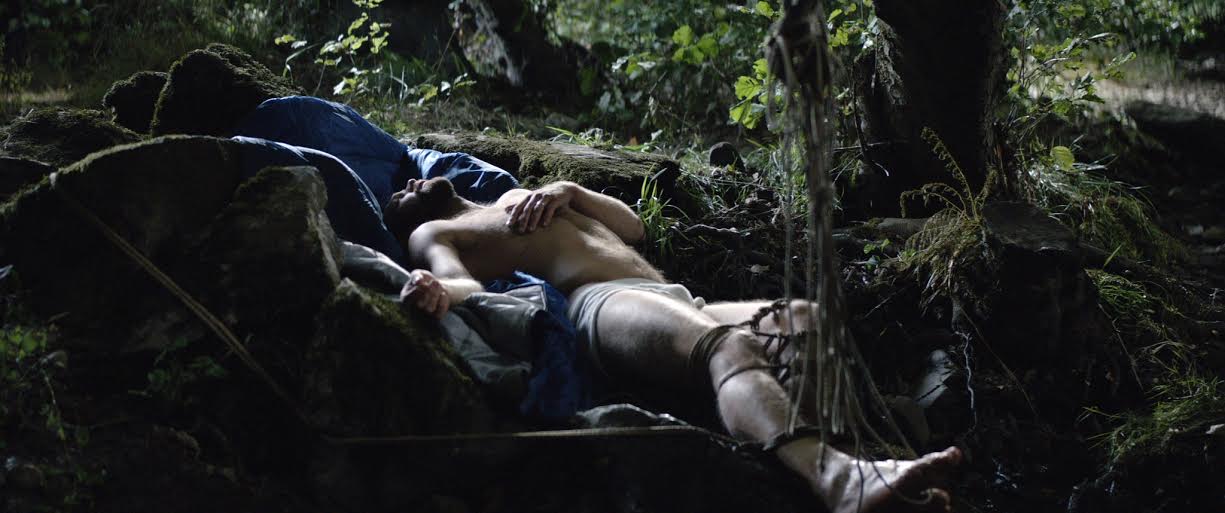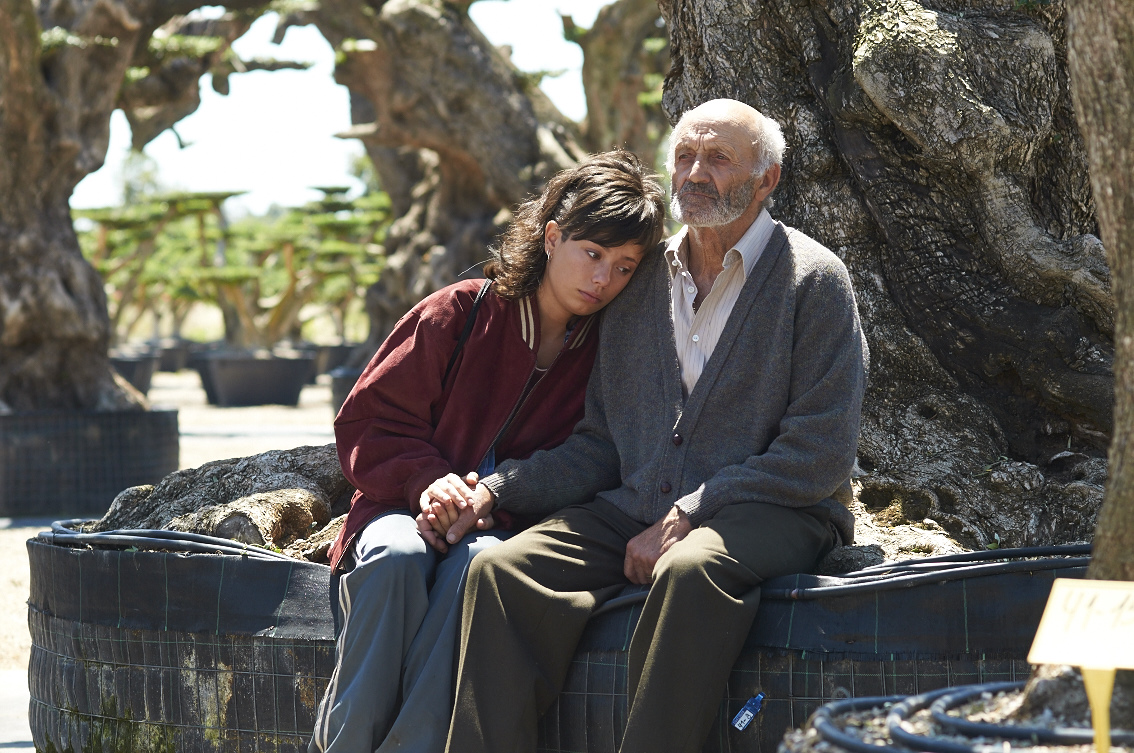Friday
Mar172017
20th Chicago European Union Film Festival (March 3-31, 2017), Report No. 3 (STEFAN ZWEIG: FAREWELL TO EUROPE, THE ORNITHOLOGIST, and THE OLIVE TREE)
 Scott Pfeiffer
Scott Pfeiffer  Friday, March 17, 2017 at 01:59PM
Friday, March 17, 2017 at 01:59PM Some of the best shows in town can be found at the Gene Siskel Film Center, as we enter the third week of the Chicago European Union Film Festival. Here are three good bets. For the full slate, go to www.siskelfilmcenter.org.
Maria Schrader's STEFAN ZWEIG: FAREWELL TO EUROPE (Austria/Germany, 2016)

Austrian writer Stefan Zweig (Josef Hader) was hugely popular in his day, and his work was grist for multiple movie treasures: Max Ophüls's Letter from an Unknown Woman (1948); Robert Siodmak's The Burning Secret (1933); Roberto Rosselini's Fear (1954); all the way up to Wes Anderson's The Grand Budapest Hotel (2014), which was inspired by his memoir, “The World of Yesterday." It's interesting to think about what Maria Schrader's stimulating, talky, sometimes beautiful biopic leaves out and what it leaves in. There's nothing of Zweig's time in fin-de-siècle Vienna, or the traumas he witnessed in World War I. As the title implies, it is about the Jewish Zweig's peripatetic years in exile in the 30s and 40s. He settled for a time in New York, where this remarried man was welcomed, movingly, into the home of his first wife, played by the great Barbara Sukowa of Berlin Alexanderplatz. His last stop was his beloved Petrópolis in Brazil. Schrader begins and closes her film with a scene-encompassing extended shot. The first lingers on the pageantry of servants putting the finishing touches on a beautiful dining room table. As the elegant, white-columned room fills with guests, Zweig expresses to the gala his hopes for a world based on peaceful coexistence. The last shows the discovery of the bodies of Zweig and his second wife (Aenne Schwarz) in their Petrópolis bedroom, where, running out of hope, they famously committed suicide in 1942. An early scene, in which a man pressures Zweig to speak out for the Jews dying back in Europe, rings false, in that biopic-y way that virtually of of Jackie rang false. These are not real people talking to each other, but vessels for a screenwriter talking to the audience. In subsequent scenes, we feel we are overhearing real conversations--the movie lets us read between the lines, showing rather than telling of the deep sadness underneath all that talk of ideas and moment. (106 min, DCP digital widescreen)
Friday, March 17th at 8pm and Saturday, March 18th at 4pm
João Pedro Rodrigues's THE ORNITHOLOGIST (Portugal/France, 2016)

Now this you've got to see. What a strange, scandalous, surreal experience. A birdwatcher kayaks in a Portuguese valley with a superabundance of beautiful rare birds. After he gets swept under the rapids and almost dies, he is rescued by two female Chinese travelers who've lost their way while doing a pilgrimage to Padua. They prove to be as insane as they are giggly. That's just the beginning. On his quest, he has dreamlike experiences which parallel the life of St. Anthony, but as cagily as the events of "Ulysses" transpose that hero's journey. From moment to moment, this feels like a horror film or a western; João Pedro Rodrigues spoke in Film Comment about the influence of Anthony Mann and Budd Boetticher on his work. It's a scary, comic picaresque. Like Pasolini, Rodrigues's approach to Biblical themes, symbols, and mythology is devout and sacrilegious at the same time. Here, the saints are gay, and they have sexual equipment. If you like the dangerous visions of Alain Guiraudie or Apichatpong Weerasethakul, I think you'll dig this. On a personal note, I've been to Padua and I've seen St. Anthony's tomb. He's the saint of lost things; whatever my own faith or absence thereof, it was deeply moving to observe pilgrims lay their hands and rest their heads on his tomb.
(118 min, DCP digital widescreen)
Saturday, March 18th at 4pm and Thursday, March 23rd at 6pm
For CINE-FILE Chicago, I wrote about Icíar Bollaín's recommended and touching THE OLIVE TREE. It's playing Sunday, March 19th at 5:15pm and Monday, March 20th at 8pm. It's sentimental, yes, but sentimental is not always a pejorative term for me, and this one got me good. You may read my write-up by going here and scrolling down to the "European Union Film Festival" section.



Reader Comments